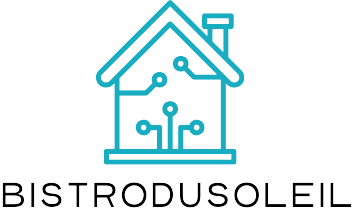Table of Contents
ToggleAs the world turns towards sustainable energy, smart solar panel integration is stealing the spotlight. Imagine harnessing the sun’s rays not just for power, but for a smarter, more efficient home. It’s like giving your roof a brain, and who wouldn’t want a genius on their house?
These innovative systems don’t just soak up the sun; they communicate, adapt, and optimize energy use like a savvy energy manager. With the right integration, homeowners can enjoy lower bills and a reduced carbon footprint while impressing their neighbors with their eco-friendly tech. So, let’s dive into how smart solar panels are transforming rooftops into energy hubs, and why it’s time to join the solar revolution.
Overview of Smart Solar Panel Integration
Smart solar panel integration signifies a pivotal advancement in energy technology, enhancing both efficiency and sustainability. These systems utilize advanced sensors and communication protocols to optimize energy capture and consumption. In doing so, they enable homeowners to monitor energy usage in real-time and adapt their consumption according to changing needs.
Energy management systems play a crucial role in smart solar panel integration. Such systems track and analyze solar energy production and household consumption patterns. They also communicate with connected devices, facilitating automated adjustments that ensure energy is used efficiently. Data analytics provide insights that help homeowners make informed decisions about energy usage.
Enhanced connectivity characterizes these innovative panels. Integration with smart home devices allows seamless interactions. Homeowners can manage energy usage through smartphone applications or voice commands. These features increase convenience, making energy management as easy as possible.
Cost savings represent another significant advantage. Many homeowners notice a reduction in energy bills after adopting smart solar solutions. In cities where electricity costs are high, these systems prove particularly beneficial. Smart solar panels not only lower expenses but also contribute to environmental sustainability.
Overall, smart solar panel integration transforms traditional energy systems into intelligent networks. The combination of technology and sustainable energy creates a cleaner future. As homeowners increasingly recognize the benefits, smart solar integration becomes more prevalent in the renewable energy landscape.
Benefits of Smart Solar Panel Integration
Smart solar panel integration offers multiple advantages that enhance homes and promote sustainability. Homeowners experience improved energy management and reduced bills through effective energy monitoring and optimization.
Increased Efficiency
Improved efficiency characterizes smart solar panel systems. Advanced sensors capture solar energy while tracking household consumption patterns. These systems enable real-time adjustments for optimized energy use, ensuring homeowners harness energy effectively. Smart algorithms analyze data and respond to varying conditions, maximizing solar output throughout the day. Enhanced connectivity with other smart home devices allows seamless communication, which further increases overall efficiency.
Cost Savings
Considerable cost savings emerge from adopting smart solar panels. Data indicates that homeowners can reduce energy bills significantly, particularly in regions with high electricity rates. By optimizing energy usage, these systems minimize reliance on grid energy. Many users report quick return on investment as energy costs decrease. Smart solar solutions often come with monitoring apps that provide insights, helping homeowners identify additional saving opportunities.
Environmental Impact
Positive environmental impacts accompany smart solar panel integration. Systems significantly reduce greenhouse gas emissions by minimizing reliance on fossil fuels and lowering carbon footprints. Research shows that households utilizing solar energy help decrease the overall demand for non-renewable energy sources. Furthermore, integrating smart technologies fosters a culture of sustainability, inspiring communities to adopt cleaner energy solutions. Ultimately, these eco-friendly systems contribute to a healthier planet for future generations.
Key Technologies Involved
Smart solar panel integration relies on advanced technologies that enhance energy efficiency and user experience. Essential components include IoT systems, smart grids, and energy management platforms.
IoT and Smart Grids
IoT devices play a pivotal role in smart solar panel integration. They facilitate real-time communication between solar panels and energy management systems. Smart grids enhance this connectivity, enabling bidirectional energy flow and improved energy distribution. These grids monitor energy demands, optimize resource allocation, and balance load across the network. Integration of IoT with smart grids allows homeowners to receive insights on energy usage patterns while enabling predictive maintenance for solar systems. As a result, energy efficiency increases and operational costs decrease.
Energy Management Systems
Energy management systems act as the brain behind smart solar panel integration. These systems collect data from solar panels and household appliances, allowing for effective energy monitoring. Homeowners can track solar energy production alongside consumption, pinpointing excessive usage. Automated adjustments help optimize energy distribution throughout the home, leading to reduced energy bills. Users benefit from alerts about peak demand hours, shifting consumption to save costs. Such systems contribute to smarter energy use, reinforcing sustainability and economic savings.
Challenges in Integration
Smart solar panel integration faces various challenges that can impede its growth and implementation. These obstacles range from technical barriers to regulatory hurdles.
Technical Barriers
Complexity in technology plays a significant role in hindering integration. Advanced sensors and communication protocols require precise installation and maintenance. Additionally, compatibility issues frequently arise when integrating with existing home systems. Homeowners often face difficulties navigating these intricate setups. The need for robust cybersecurity measures remains critical; vulnerabilities can endanger both personal data and infrastructure. Solutions exist, but they usually demand higher initial investments. Understanding these technical challenges helps consumers make informed decisions.
Regulatory Hurdles
Regulatory frameworks vary significantly across regions, complicating the integration of smart solar panels. Homeowners may encounter different state and local policies regarding installations. Permitting processes can be lengthy and complex, deterring homeowners from adopting solar technologies. Incentives often fluctuate, leading to confusion about available financial aid. Compliance with grid interconnection standards poses an additional challenge. Each region’s regulations influence the overall feasibility of installation and integration. Clear guidelines and consistent policies will support the widespread adoption of smart solar systems.
Future Trends in Smart Solar Panel Integration
Smart solar panel integration is poised for significant advancements in the coming years. Emerging technologies, such as artificial intelligence (AI) and machine learning, will further enhance energy management systems. These innovations create more predictive analytics capabilities, allowing homeowners to anticipate energy needs based on historical usage patterns.
Increased integration with smart home ecosystems will promote seamless communication between devices. Homeowners benefit from synergies created when solar panels interact with home appliances to optimize consumption. Real-time data analytics can support decision-making related to energy usage, facilitating proactive adjustments.
Additionally, the collaboration with energy storage solutions will achieve greater efficiency. Energy storage systems enable homeowners to store excess solar energy for use during peak demand times. This synergy leads to reduced reliance on the grid and increases overall energy independence.
The implementation of advanced grid systems will also play a crucial role. Smart grid technologies enhance the efficiency of energy distribution, allowing bidirectional energy flow. Homeowners leverage these capabilities to sell excess energy back to the grid, creating potential income sources while promoting sustainability.
Tracking and monitoring capabilities will continually improve as well. Enhanced sensors embedded in solar panels can provide more granular data regarding performance. This data allows for improved maintenance schedules and predictive repairs, ensuring system reliability.
A shift towards more user-friendly interfaces for energy management systems is likely. Intuitive smartphone apps will empower users to control their energy consumption effortlessly. Simplifying interactions with these systems encourages widespread adoption among homeowners.
As these trends develop, smart solar panels will impose substantial impacts on reducing energy costs. Households are likely to see significant savings and lower carbon footprints. By embracing these innovations, homeowners participate in driving the renewable energy movement forward.
Smart solar panel integration is reshaping the landscape of renewable energy. By combining advanced technology with sustainability, these systems empower homeowners to take control of their energy usage while minimizing costs and environmental impact. The convenience of real-time monitoring and automated adjustments not only enhances efficiency but also promotes a greener lifestyle.
As technology continues to evolve, the potential for smarter energy management grows. Homeowners can look forward to even greater savings and improved energy independence. Embracing smart solar integration isn’t just a trend; it’s a vital step toward a sustainable future where clean energy becomes the norm. The journey toward a more eco-friendly home has never been more accessible or rewarding.




